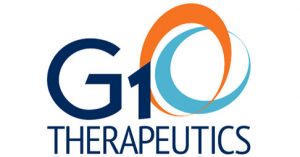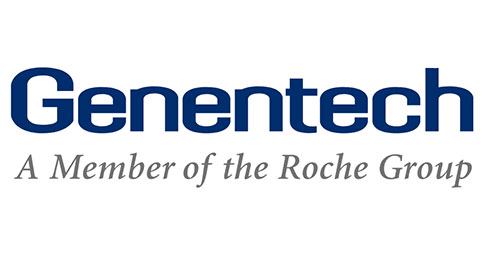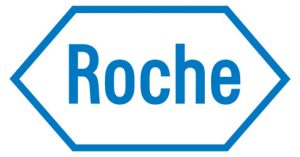Understanding epigenetic processes is crucial for advancing treatments in areas of unmet need such as human cancers, metabolic syndromes, regenerative medicine, ageing research and neurological disorders. At Fios Genomics, we provide a suite of specialised data analysis services for epigenetic research. Our investigations can aid in unravelling disease mechanisms and contribute to the development of therapies that focus on epigenetic biomarkers.
What We Offer
We offer a comprehensive analysis approach to ensure you get as much information as possible out of your epigenetic research data, helping to guide future decision making and maximising the return on your investment.
Our epigenetics data analysis solutions include:
DNA Methylation Data Analysis
The addition of methyl groups to cytosine nucleotides in the context of cytosine-guanine (CpG) dinucleotides is the most widely studied epigenetic modification, known as DNA methylation. Furthermore, CpG sites are non-randomly distributed throughout the genome within high densities at CpG islands near genes and lower densities in the non-coding genome. DNA methylation patterns, which are heritable through cell divisions, dynamically regulate gene expression in response to developmental or environmental cues without altering the underlying DNA sequence. In addition to established array-based methods (Illumina arrays), modern techniques, including methylC-seq, precisely measure DNA methylation at specific sites, providing regulatory insights in cell populations or single cells.
At Fios Genomics, our DNA methylation analyses include:
- Quality control of raw array methylation and methylC-seq data
- Differential methylation analyses
- GSEA and ORA pathway analysis from differentially methylated gene promoters
- Integration with other data platforms e.g. RNA-seq
ChIP-seq Data Analysis
Chromatin immunoprecipitation sequencing (ChIP-seq) analysis can be used to assess DNA-protein interactions. These include transcription factor binding and histone modification levels.
At Fios Genomics our ChIP-seq analyses include:
- Data preprocessing (Involves initial QC steps and data munging (cleaning). Removal of low-quality reads, adapters and PCR duplicates. Also, assessment of immunoprecipitation ‘strength’ compared to background sequencing)
- Peak calling (Identifies genomic regions where DNA-protein interactions are enriched)
- Motif analysis (Identifies enriched DNA motifs in peaks)
- Differential binding analysis (Identifies genomic regions of differential peak enrichment between experimental groups)
ATAC-seq Data analysis
ATAC-seq (Assay for Transposase-Accessible Chromatin using sequencing) allows investigation of genome-wide chromatin alterations between biological samples as well as chromatin-accessibility signatures. Our operations team offers comprehensive ATAC-seq data analysis services for unrivalled epigenomic insights. In particular, we can provide tailored epigenomic solutions to analyse unprocessed ATAC-seq data. You can discover hidden regulatory elements, transcription factor binding sites, and more with our advanced ATAC-seq analysis to inform your future research avenues. This includes:
- Data preprocessing (Involves initial QC: filtering of low-quality reads, trimming adapter sequences, quantifying and filtering mitochondrial DNA reads)
- Peak calling (Identifying genomic regions enriched compared to a genomic background – indicates highly nuclease-sensitive accessible chromatin)
- Differential accessibility analysis (Identifies differentially accessible chromatin regions between experimental samples)
- Functional annotation and Pathway analysis (Functional annotation of accessible chromatin – permits identification of biological processes and pathways associated with ATAC-seq peaks)
- Integration with other epigenetics data types such as ChIP-seq
Benefits of Working with Fios Genomics
Epigenetics data analysis poses several challenges due to the complexity and volume of data generated from techniques such as DNA methylation, ChIP-seq, and ATAC-seq. In particular, one major challenge is data preprocessing and quality control, in order to ensure meaningful results and minimising artefacts. Understanding epigenetic changes in a biological context requires advanced statistical tools to analyse changes across various conditions and study cohorts. This is also the case when integrating multi-epigenomics data and considering the dynamic nature of epigenetic modifications. However, at Fios Genomics we have the required statistical expertise to ensure robust analysis enabling maximum insight from your epigenetics study.
Dedicated Bioinformatician
A dedicated bioinformatician, backed by an experienced bioinformatics team, will curate all data, identify the most appropriate statistical approach to take and provide a biological interpretation of results
Interactive Data Analysis Report
Receive a searchable data analysis report that includes interactive visualisations of the data. Our reports are internally peer-reviewed and include analysis methods and results (particularly helpful if you plan to publish your research results)
Post-Report Follow-Up
Upon receipt of our data analysis report, we arrange a review call so that your project’s dedicated bioinformatician can talk you through the results and answer any questions you have about the report
Dedicated Project Manager
Your dedicated Project Manager will act as your single point of contact throughout the project. They will ensure everything from data transfer to report delivery runs smoothly and efficiently for you
Large Capacity Computing
When you choose Fios Genomics, you benefit from our large capacity computing and secure data storage facilities, where we store all your raw data, analysed data and your data analysis report
Epigenetics Data Analysis Applications
There are many useful applications of epigenetics data analysis, such as:
Gaining insight into protein–DNA interactions
Knowledge of patterns is clinically relevant – unravelling DNA-protein interactions, pinpointing regulatory elements, and informing targeted patient specific therapies in disease states.
Investigate DNA methylation patterns
Exploring DNA methylation patterns in the clinic can unveil crucial epigenetic insights, guiding tailored approaches for disease diagnosis and treatment.
Characterise the response of cells or tissues to epigenetic modifying agents
For example, treating cancers (acute myeloid leukaemia) with DNA methylation inhibitor 5-azacytidine – recently approved by the FDA (USA).
Understanding the mechanisms that regulate gene expression in response to environmental stresses or during developmental processes
Using ATAC-seq data, researchers can now infer the genomic position of important regulatory DNA elements that play roles in controlling gene expression.
Our Experience in Epigenetics Data Analysis
We have helped our clients with the following projects:
- Unravelling the DNA methylation associated alterations in Diabetic Kidney Disease
- Identifying epigenetic determinants of individuals susceptible to psychological stress and ageing skin
- Correlation of genotype and epigenotype in the context of osteoarthritis
- Evaluation of methylation levels at baseline against age as a continuous variable, adjusting for disease status
- ChIP-seq analysis to identify DNA-protein interaction sites
- Revealing disease insights by efficiently merging methylation data from multiple studies in powerful meta-analyses
- Bespoke epigenetics analysis of client-determined loci of interest: promoters, enhancers, CpG islands, repetitive elements
Our Reports
Our analysis reports come as an HTML link hosted on our secure server. The secure link contains a password-protected HTML document that is clickable, searchable, and dynamic. This format allows you to easily interrogate and explore your data. Furthermore, our reports always include all analysis methods, tools, and thresholds. In addition, to facilitate sharing of key results in alternative formats such as presentations and posters, all figures in our reports can be downloaded as either PDFs or PNGs, and all tables can be downloaded in tabular data formats.
Example Epigenetics Data Analysis Report
To demonstrate what you can expect from a Fios Genomics report for epigenetics data analysis, we have an example report available: MicroRNA profiling by microarray of human urinary sediments from IgAN patients. In particular, this report describes the analysis of microRNA (miRNA) expression data which has been generated from a total of 32 urinary sediment samples gathered from patients with nephropathy or healthy controls (deposited in the Gene Expression Omnibus database: GSE64306). To receive the report, contact us and request our MicroRNA profiling report.
Our Testimonials
We were very pleased with the service provided by Fios Genomics. In particular, the Fios team were flexible and willing to spend time understanding our specific project needs and the key scientific questions we were asking of the experiments. They tailored the data output in a way that specifically addressed these questions, which was really helpful. The data package was Web-based and interactive and we were delighted with the way it was presented and explained to us. We will certainly work again with the Fios team for any future projects.

Companies We Have Worked With
Request a Quote
Further Information
We Can Help With Different NGS Data Types
We can help with data from all the major technology platforms (eg Illumina, PacBio) for a wide range of applications such as:
- Genome-wide association studies (GWAS), whole genome sequencing (WGS) data analysis, SNP detection, and haplotype analysis to facilitate the discovery and/or typing of SNPs implicated in disease
- RNA-seq data analysis: whole transcriptome analysis for differential gene analysis
- ChIP-seq data analysis, for analysing interactions in DNA-protein
- Methyl-seq data analysis: Bisulfite sequencing analysis for epigenetic studies
- Exome analysis for the identification of known and novel SNPs and indels etc.
- CNV analysis







